Wan Fokkink (chair of the day, VUA)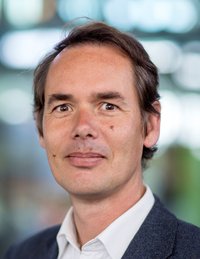
Jan Friso Groote (Eindhoven University of Technology)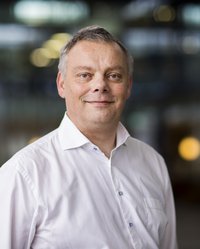
Branching bisimulation is the best process equivalence ever
Branching bisimulation was invented at CWI by Rob van Glabbeek and Peter Weijland in 1988 as an alternative for weak bisimulation. Jos Baeten was one of the greatest proponents of this notion. Advantages of branching bisimulation are its respect for the branching structure of processes, it is coarser then any other reasonable equivalence allowing abstraction of internal steps and in the early days it had an efficient O(mn) algorithm, now replaced by an O(m log n) algorithm. Practically, the algorithms scaled up from 10^2 to 10^10 states, making branching bisimulation an essential workhorse for model checking.
Jan Friso Groote started working in 1988 in AP2, a research group at CWI, headed by Jos Baeten, and defended a PhD of which Jos Baeten was co-promotor. From 1991 to 2005 he worked at the department of Philosophy at Utrecht University, before becoming group leader at CWI of the research group SEN2, which was the successor of AP2. From 1998 onwards, upon invitation by Jos Baeten, who had become full prof. and dean in Eindhoven, he first became a part time and later a full time professor at Eindhoven University of Technology.
Sjouke Mauw (University of Luxembourg)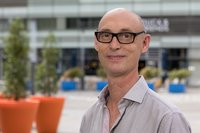
Discovering e-passport vulnerabilities using bisimilarity
Recently, we uncovered privacy vulnerabilities in the ICAO 9303 standard implemented by e-passports worldwide. These vulnerabilities, confirmed by ICAO, enable an e-passport holder who recently passed through a checkpoint to be reidentified without opening their e-passport. In this talk I will discuss the interesting history of formal analysis of this standard, highlighting some apparently inconsistent findings. Further, I will explain how we used bisimilarity to discover these vulnerabilities and (hopefully) settle the discussion on security of the standard.
Bio:
Sjouke Mauw is full professor and head of the Department of Computer Science at the University of Luxembourg. He received his PhD from the University of Amsterdam in 1991, under supervision of Jos Baeten and Jan Bergstra. Until 2007 he was associate professor in computer science at the Eindhoven University of Technology, enjoying a part-time secondment at the CWI in Amsterdam. His current research focuses on the application of formal methods in the area of information security.
Twan Basten (Eindhoven University of Technology)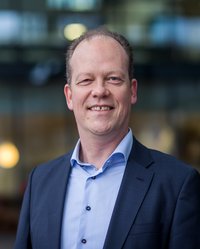
An Algebra for Quality and Resource Management
Many systems in today's society are computer controlled. Systems intensely interact with human users and with other systems, in ever changing operating conditions. To ensure their proper functioning, it is important to explicitly manage relevant system qualities (such as timeliness, power dissipation, safety) and resource usage (such as processing, bandwidth, storage, energy), during design, deployment and run-time operation of a system. We present an algebraic interface-modeling framework for component-based Quality- and Resource Management (QRM). The framework supports the continuous, dynamic optimization of system qualities and resource usage in embedded and cyber-physical systems.
Bio:
Twan Basten was one of the first PhD students of Jos Baeten in Eindhoven. His experiences as a PhD student in Jos' group have had a lasting impact on Twan as a person and on his career. Algebra is never far away. Twan nowadays is a professor in the Electrical Engineering department at Eindhoven University of Technology (TU/e), the Netherlands. He is also a senior research fellow of TNO Embedded Systems Innovation. He holds an MSc (1993) and a PhD (1998) in Computing Science from TU/e. His research interests include embedded and cyber-physical systems, dependable computing and computational models.
Ana Sokolova (University of Salzburg)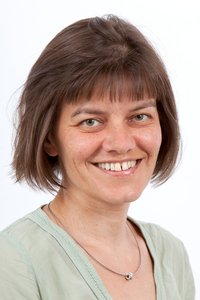
Algebra for Probability and Nondeterminism
The combination of probability and nondeterminism has been difficult to tackle and subject to a significant body of work in the past couple of decades, especially regarding understanding trace semantics. In recent work, joint with Filippo Bonchi and Valeria Vignudelli, we have managed to give a thorough and yet easy answer to the problem of combining probability and nondeterminism, which further enabled us to develop a theory of traces. This work is a nice example of the interplay between algebra and coalgebra: Systems and automata (with nondeterminism and probability) are coalgebras, but their behaviour is algebraic as we reveal in this work.
Bio:
I was born and raised in Skopje, Macedonia, where I studied up to masters level and worked as a teaching assistant at the University St. Cyril and
Methodius. Around this time I met Jos: We were doing a seminar on Process Algebra following his "blue book". Two of my colleagues visited Eindhoven for several months and in the following year we invited Jos to one of the local seminar retreats. That's when I met Jos :-) I was in charge of driving him around during his visit to Macedonia.
Couple of years later, I was considering what to do for my PhD, when a friend who was almost finishing hers in the group of Jos told me there are
positions and Jos had asked about me. That was an easy decision then for me, and in June 2001 I joined the FM group at TU/e. My supervisor was Erik de Vink and promotor Jos Baeten. I defended my PhD thesis in 2005, after which I worked as a postdoc in Nijmegen and in Salzburg, where I have stayed ever since. Currently I am an Associate Professor at the University of Salzburg and a Head of the Department for Computer Sciences.
Jos Baeten (CWI)
The computer and me
I discuss the role the computer, and computer models, have played in my life.
I end with some words of thanks.
Stan Gielen (NWO)
How to fulfill an impossible job
In addition to excellence in science, a visionary approach to science and impact of science, leadership, and managerial qualities, a director of a NWO institute should meet many other criteria, which makes a directorship of a NWO institute almost an “impossible job” to do. I will address some of these criteria and will describe how Jos dealt with these criteria. Most of all, I will thank Jos for his great contributions to science, and in particular to research at CWI.
Bio:
As president of NWO I have had the pleasure to meet Jos at least once every month to discuss science and the role of CWI in the national landscape. Moreover, Jos and I share a passion for Open Access and Open Science.
Sonja Smets (ILLC UvA) & presentation of liber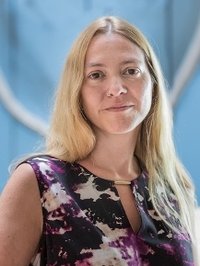
From Logic to Computation
Bio:
Sonja Smets is full professor of Logic and Epistemology at UvA's Institute for Logic, Language and Computation (ILLC), where she holds a double affiliation in the Faculty of Science and in the department of Philosophy within the Faculty of Humanities. She currently combines her position in Amsterdam with a 0.2Fte temporary appointment as Professor II at the Logic, Information and Interaction Group, Department of Information Science and Media Studies at the University of Bergen in Norway. Since June 2016 she is the scientific director of ILLC, the institute in which Jos Baeten holds the 'Theory of Computing' chair since January 2015. She met Jos in her function as director of the ILLC and together they continued building the strong scientific ties between CWI and ILLC that go back for many years.
